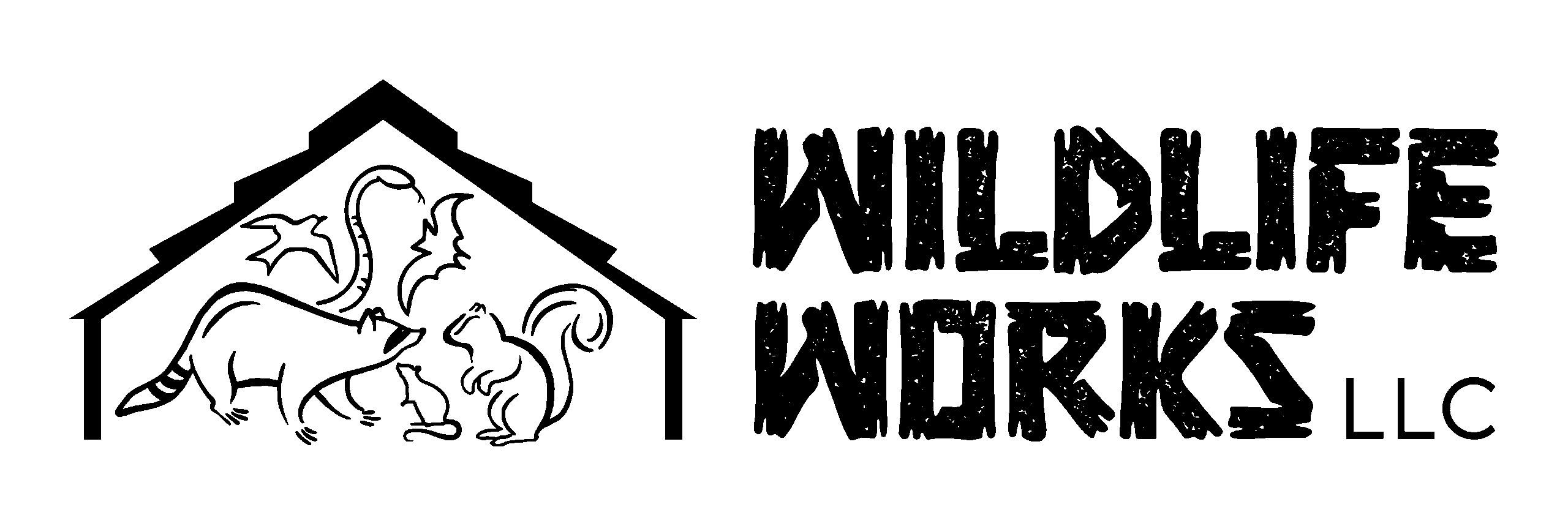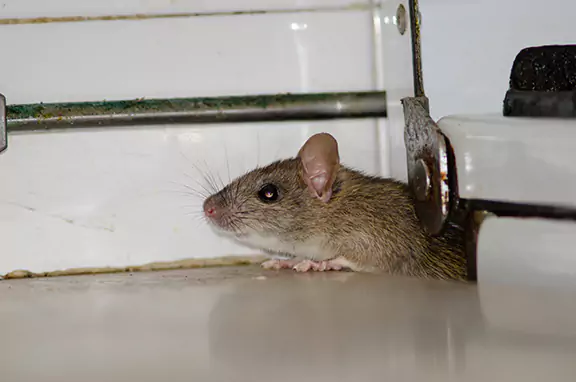Florida’s subtropical climate is ideal for more than just beach vacations—it also provides a year-round haven for pests like rats and mice. These unwanted guests are more than just a nuisance. In Florida, house mice contaminate food, destroy property, and can even start electrical fires by chewing through wires inside your walls or attic.
Whether it’s a single mouse sneaking into your pantry or a full-blown rodent infestation, the key to long-term protection is prevention. In this article, we’ll walk you through how to keep rodents out of your house, focusing specifically on the risks and solutions relevant to Florida homes. We’ll also explain what to watch for and when to call in pest control professionals like Wildlife Works for efficient solutions that last.
What Attracts Rodents to Florida Homes
Rats and mice are resourceful animals with simple goals: they want a warm place to live, consistent food sources, and safe spots to build a nest. In Florida, where the weather rarely cools enough to slow pest activity, a mouse infestation can invade homes any time of year—but especially during the winter months when overnight temperatures drop.
Even well-maintained homes can be targets. Rodents are skilled at slipping through small holes, cracks, and utility gaps around plumbing or electrical lines. Once inside, they search for accessible dry food, leftover food, or even crumbs in kitchen cupboards. To deter rodents, it’s essential to remove debris, secure pet food, manage open trash bins, and ensure overflowing bird feeders do not increase the chances of attracting them.
Florida’s natural habitat—lush vegetation, wood piles, and moist crawl spaces—also creates ideal conditions for nesting. Without early intervention, what starts as a single sighting of mice can escalate quickly into a larger mouse or rat infestation.
Signs of a Rodent Infestation
Rodents are stealthy by nature, but they often leave behind clear signs of their presence. One of the most common indicators is the appearance of rat droppings or small pellet-like waste left by mice, especially in pantry corners, under sinks, or along skirting boards. These droppings are not just unsanitary—they can also spread germs and trigger allergies.
You may also hear scratching, chewing, or scurrying noises at night, particularly in walls, ceilings, or crawl spaces. Gnaw marks on wood, plastic, or wiring are another red flag, as rodents chew constantly to keep their teeth from overgrowing. This behavior can lead to serious structural damage and even electrical fires if wires are compromised.
Other signs include shredded paper or insulation used to create nests, strong ammonia-like odors, or greasy rub marks along baseboards where rodents travel repeatedly. Spotting any of these symptoms suggests that rodents have already found access—and it’s time to take action before the infestation worsens.
8 Ways to Keep Rodents Out of Your House
Rodent prevention is all about consistency and awareness. Below are the most effective steps homeowners in Florida can take to secure their property and achieve a rodent-free home before they get in.
1. Seal Entry Points
Inspect your home’s exterior for small gaps, cracks, and holes—especially around pipes, vents, and foundation lines. Use materials like steel wool, caulk, or hardware cloth to block these spaces. Even a hole the size of a dime can be enough for a mouse to get through.
2. Store Food in Rodent-Proof Containers
Avoid using thin plastic or paper packaging in the pantry. Store grains, pet food, and snacks in glass containers or metal containers with tight-sealing lids. This prevents rodents from smelling or accessing food sources.
3. Clean Up Food Waste Immediately
Leftover food and crumbs are major rodent attractants. One essential step is to ensure you don’t leave food out—wipe down counters, sweep floors, and empty garbage cans daily. Don’t forget to check under appliances and behind cabinets for hidden messes.
4. Manage Pet Food and Feeding Areas
Never leave pet food out overnight. To prevent mice, use sealed containers to store dry kibble, and clean up after pets have finished eating. Rodents often target pet bowls as an easy meal source.
5. Remove Outdoor Attractants
Keep your yard tidy and reduce shelter opportunities by trimming back vegetation and removing clutter. Move firewood and compost bins away from the foundation. If you use bird feeders, position them away from the home and clean up spilled seed regularly.
6. Secure Crawl Spaces and Vents
Check that all crawl space doors, attic vents, and basement windows are properly screened and sealed against possible entry points.
7. Use Natural Deterrents Carefully
Some homeowners try peppermint oil, essential oils, or cotton balls placed near suspected entry points. While these may offer mild deterrence, they are best used as part of a larger prevention strategy—not on their own.
8. Schedule Professional Rodent Control
If you’re dealing with recurring rodent problems, a professional pest control company like Wildlife Works can provide a complete assessment and exclusion plan. This ensures long-term protection customized for Florida’s unique environment.
5 Rodent-Proofing Tips for Florida Homes
Rodents are especially persistent in Florida, thanks to the mild winters and the abundance of natural shelter. These additional tips will help harden your home against invasion.
1. Install a Tight-Sealing Garage Door
Gaps under garage doors are one of the most overlooked rodent entry points. Upgrade to a door with a rubber bottom seal and make sure it sits flush against the ground. Regularly check for wear and replace weather stripping as needed.
2. Screen Attic and Foundation Vents
Openings for ventilation are necessary, but they’re also vulnerable. Install fine mesh or hardware cloth over all vent openings, ensuring there’s no space for rodents to squeeze through.
3. Avoid the Use of Poisons Indoors
Poisons can be dangerous to pets, children, and other animals. They also cause rodents to die in hidden areas, creating odors and attracting other pests. If needed, use enclosed bait stations under the guidance of a licensed professional.
4. Keep Trash Secure and Away from the House
Garbage is one of the most common attractants for rats. Use heavy-duty trash bins with tight lids and store them several feet from the foundation. Rinse containers regularly to eliminate odors.
5. Address Moisture and Drainage Issues
Rodents often settle near damp areas like basements and crawl spaces. Use dehumidifiers or improve drainage to keep these areas dry. Fix any leaking pipes or exterior faucets while also sealing off all potential access points that might draw pests toward your home.
What Attracts Rodents to Florida Homes
Rodents aren’t just unsettling—they’re expensive. What begins as a small intrusion can quickly snowball into a costly home repair or health emergency. Here’s what homeowners risk when they delay rodent prevention or removal and cannot rid their homes of these pests :
Electrical fires from chewed wiring
Mice and rats frequently gnaw on wiring, increasing the risk of house fires. Repairing electrical systems or fire damage can cost $3,000 to $15,000, depending on the extent.Contaminated food and surfaces
Rodents spread diseases like hantavirus and salmonella through droppings and urine. Replacing spoiled food and sanitizing contaminated areas could run $300 to $1,000, not to mention the health risk to pets and children.Insulation and duct damage
Rodents often nest in attics or crawl spaces, tearing up insulation and soiling it with waste. Re-insulating and cleaning a contaminated attic typically costs $1,500 to $4,000.Foul odors and secondary pests
Dead rodents trapped in walls or HVAC systems can lead to intense odors and draw flies, mites, or cockroaches. Odor remediation and pest treatment may cost another $500 to $2,500.Structural repairs and pest-proofing
Long-term infestations can damage baseboards, cabinets, and even structural framing. Full repairs and sealing of entry points may add $1,000 to $3,000 or more to your home maintenance budget.
Ignoring the problem doesn’t just invite further damage—it multiplies the cost. Fortunately, proactive prevention and timely rodent control services can help you avoid these expenses altogether.
Wildlife Works Offers Effective Rodent Control in Florida
When it comes to rodent prevention, cutting corners can ultimately cost more in the long run. At Wildlife Works, we offer tailored rodent control solutions designed specifically for Florida homes. Our team doesn’t just treat the symptoms—we identify and close off the root causes.
Our services include complete property inspections, precise sealing of entry points, and recommendations for long-term deterrents. We help homeowners address everything from crawl space vulnerabilities to food storage habits, using proven exclusion techniques and eco-conscious materials that keep your home protected—without endangering pets or other animals.
Contact us today to schedule your inspection or request a quote. Protect your family, your property, and your wallet by putting prevention first.
Need Help?
Call Now: 352-717-8727
Don’t wait for wildlife problems to escalate. Get expert help today.

